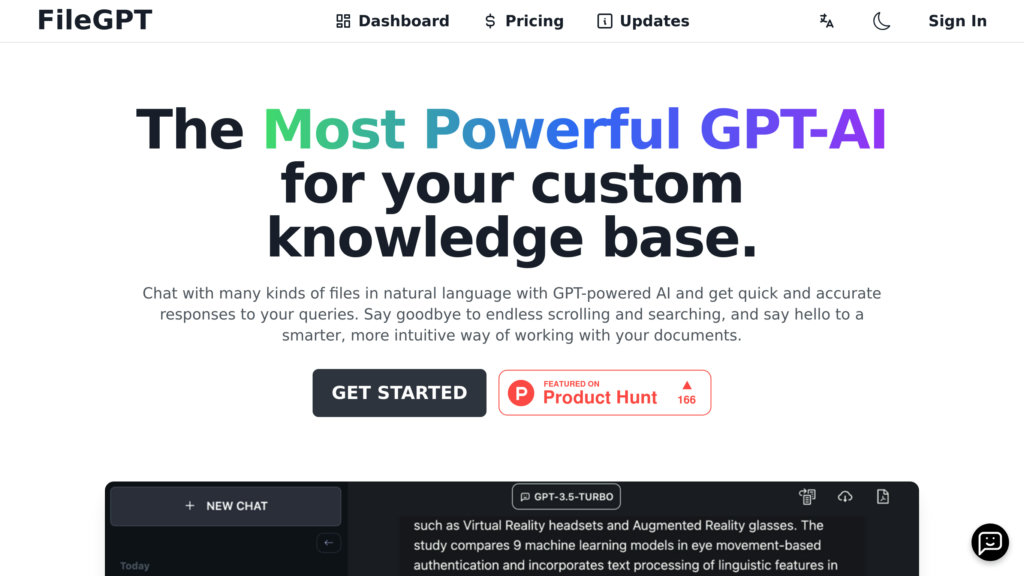FileGPT
Chat with documents, audio, video using natural language queries
Introduction
What is FileGPT?
FileGPT is a sophisticated AI application built on a Large Language Model (LLM), revolutionizing how users engage with and retrieve knowledge from a vast array of data formats. It accommodates PDFs, Word documents, text files, audio and video recordings, YouTube videos, webpages, and even digitized handwritten notes through Optical Character Recognition (OCR). By facilitating natural conversations with your content, FileGPT does away with the need for laborious scanning and searching, delivering precise answers instantly. It is engineered for experts, academics, and creative professionals seeking a unified platform for efficient information management and cross-referencing across diverse sources.
Key Features:
• Broad Format Compatibility: Seamlessly works with numerous file types such as PDFs, DOCs, TXTs, audio, video, YouTube URLs, webpages, and handwritten notes.
• Conversational Query Interface: Engage with your files using everyday language, making information discovery intuitive and straightforward.
• Multi-Source Information Synthesis: Pose questions that span several files and sources at once to receive consolidated and thorough responses.
• Robust Processing Capacity: Capably manages voluminous documents and extensive text without compromising on speed or accuracy.
• Intelligent Data Extraction: Leverages cutting-edge OCR and AI algorithms to interpret and analyze text from handwritten notes, audio tracks, and video footage.
• Adaptable Subscription Options: Choose from a range of pricing tiers, with capabilities expanding from essential document handling to sophisticated multimedia analysis.
Use Cases:
• Academic Research: Scholars can rapidly query and synthesize findings from a collection of research papers, multimedia data, and reports.
• Corporate Document Handling: Business users can efficiently manage contracts, project documentation, and financial records, swiftly uncovering critical information.
• Content Development: Writers and marketing professionals can interact with drafts, source materials, and multimedia assets to accelerate the creation and editing process.
• Comprehensive Data Examination: Analysts can cross-examine extensive datasets alongside audio and video content to gain deeper, holistic insights.
• Educational Resource Management: Educators can effectively organize and interrogate lesson plans, student work, and teaching materials.
• Legal Document Analysis: Legal practitioners can rapidly pinpoint pertinent details within case files, legal agreements, and other documentation.
